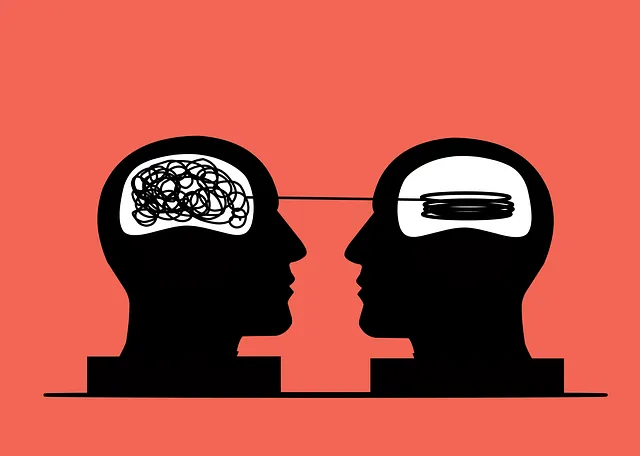Boulder Kaiser Permanente behavioral health services prioritize cultural sensitivity to improve mental healthcare accessibility and outcomes for a diverse patient population. By integrating culturally relevant practices, addressing taboos, and overcoming language barriers, they foster trust and open communication. The easily accessible Boulder Kaiser Permanente behavioral health number highlights their commitment to providing respectful, tailored care based on individual cultural backgrounds and beliefs, leading to better treatment outcomes.
In today’s diverse society, cultural sensitivity is paramount in mental healthcare. This article explores the critical role of cultural competency within institutions like Boulder Kaiser Permanente Behavioral Health, examining its impact on patient care and treatment outcomes. We delve into the unique challenges faced by practitioners and present strategies to enhance culturally sensitive practices, ensuring equitable and effective care for all individuals, regardless of their background. Understanding and navigating these aspects are essential steps towards revolutionizing mental healthcare.
- Understanding Cultural Diversity in Mental Healthcare
- The Role of Cultural Sensitivity in Effective Treatment
- Challenges and Strategies for Practitioners at Boulder Kaiser Permanente Behavioral Health
- Enhancing Patient Care Through Culturally Competent Practices
Understanding Cultural Diversity in Mental Healthcare

Mental healthcare practices in Boulder, like those at Kaiser Permanente behavioral health number, are increasingly recognizing the importance of cultural sensitivity to provide effective and compassionate care. Understanding cultural diversity involves acknowledging that individuals from different backgrounds—including race, ethnicity, religion, and socioeconomic status—may have unique perspectives on mental health and wellness. This knowledge is crucial for building resilience within communities, as it enables healthcare providers to offer tailored support that respects and incorporates cultural beliefs and practices.
For instance, crisis intervention guidance may need to be adapted to address specific cultural fears or taboos surrounding mental illness. Similarly, mindfulness meditation, a popular tool in many Western settings, can be culturally nuanced to ensure its relevance and acceptability for diverse populations. By embracing these adaptations, Boulder’s mental healthcare providers not only enhance their services’ accessibility but also foster deeper connections with patients, ultimately improving treatment outcomes and promoting overall well-being.
The Role of Cultural Sensitivity in Effective Treatment

Cultural sensitivity plays a pivotal role in effective mental healthcare treatment, especially within diverse communities like those served by Boulder Kaiser Permanente behavioral health services. It goes beyond simply providing care; it ensures that individuals from various cultural backgrounds receive tailored support that respects their unique perspectives and traditions. This approach is essential for building trust between patients and healthcare providers, fostering open communication, and achieving positive outcomes.
Understanding the nuances of different cultures allows mental health professionals to employ effective stress reduction methods, such as those taught in programs offered by Boulder Kaiser Permanente. By integrating these practices into treatment plans, therapists can help clients manage anxiety relief and navigate challenging situations with cultural context in mind. Moreover, cultural sensitivity aids in risk management planning for mental health professionals, enabling them to anticipate and address potential issues that may arise due to cultural disparities, thereby enhancing the overall quality of care.
Challenges and Strategies for Practitioners at Boulder Kaiser Permanente Behavioral Health

Boulder Kaiser Permanente Behavioral Health faces unique challenges when it comes to cultural sensitivity in mental healthcare. With a diverse patient population, practitioners must navigate complex issues like language barriers, different cultural beliefs and practices related to mental illness, and varying expectations of care. For instance, some cultures may have specific rituals or approaches for managing emotions, which might differ significantly from Western therapeutic methods. Overcoming these challenges requires a multifaceted strategy.
One key approach is continuous education and training in cultural competency. This equips practitioners with the knowledge and skills to understand and respect diverse perspectives, fostering an environment that boosts patient confidence and encourages open communication. Additionally, implementing translation services and culturally sensitive marketing materials can address language barriers and reduce the mental illness stigma, promoting emotional well-being through inclusive practices. These strategies not only enhance patient experiences but also contribute to successful treatment outcomes.
Enhancing Patient Care Through Culturally Competent Practices

Incorporating culturally competent practices within mental healthcare can significantly enhance patient care and outcomes, especially in diverse communities like those found in Boulder, Colorado, or across various regions served by Kaiser Permanente. By recognizing and understanding a patient’s cultural background, beliefs, and values, healthcare providers can tailor their approach to better address unique needs. This personalized care not only fosters trust and open communication but also improves treatment adherence and satisfaction levels. For instance, a patient from a specific cultural group may prefer certain therapeutic techniques or have specific self-care routine development needs that align with their traditions.
For those seeking anxiety relief or support for other mental health concerns, culturally sensitive behavioral health services become even more crucial. The Boulder Kaiser Permanente behavioral health number, easily accessible to residents, reflects the organization’s commitment to providing inclusive care. This ensures that patients from various backgrounds can receive treatment that respects and incorporates their cultural identities, ultimately leading to better overall mental healthcare outcomes.
Cultural sensitivity is a cornerstone of effective mental healthcare, as demonstrated by practices at Boulder Kaiser Permanente Behavioral Health. By understanding and embracing cultural diversity, practitioners can significantly enhance patient care. Overcoming challenges through strategic initiatives ensures that the unique needs of a diverse range of patients are met. This approach not only benefits individual patients but also fosters a more inclusive and accessible healthcare system overall, reflecting the importance of culturally competent practices in modern mental healthcare.






